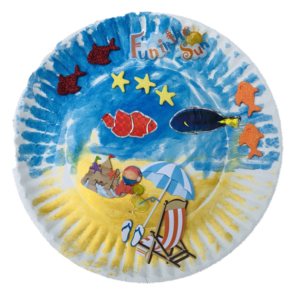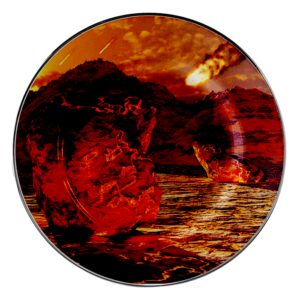Where Are We Now?
Two years ago, we launched A Plate of Pandemic to highlight creative responses to the Covid-19 pandemic. Covid is no longer as dreaded as it was in 2021, thanks to vaccines, health protocols, and treatments like Paxlovid. State and Federal Pandemic Relief funds have ended, or are about to, and most Americans no longer wear masks in public. The Center for Disease Control informs us, however, that so far in 2023 about 500 Americans on average have died daily from Covid, and to date Covid has killed more than a million Americans as well as millions worldwide. It’s still a force to be reckoned with, even if it appears, superficially, to be less threatening and more controllable.
Because the Covid-19 pandemic has become so familiar since 2020, the term itself—pandemic—has enlarged. Two years in isolation demonstrated how the daily turns of the virus effected an accretive meaning, as each new fact or protocol glommed onto our prior understanding. The Covid pandemic has been a visitation of worldwide compass, has killed millions, has caused great suffering. But now we know—if we didn’t know it earlier—that pandemic need not apply solely to a rampaging disease. Because during the time we were in thrall to the mutations of Covid, many other hugely terrible events were happening—increasing gun violence and mass shootings, increasing drug addictions and homelessness, relentless destruction caused by weather disasters caused by accelerating climate change, and several terrible wars, both ongoing and threatened.
We’ve decided, accordingly, to enlarge the scope of this magazine. A Plate of Pandemic will soon start publishing material that responds significantly to any catastrophic situation. Poetry, fiction, nonfiction, art—these offer the deepest expressions of the inner life as it’s impacted by external forces. We look forward to the next round of submissions and are hopeful that future issues will have a more comprehensive and varied scope. The current issue will be the last to be organized solely around the idea of the Covid pandemic.
We who have suffered Covid directly or indirectly, who have been displaced by wildfires, hurricanes, or tornados, who have watched mass slaughter occur, whether by gunmen in the U.S. or by missiles launched at Ukraine by Russians, are impacted by every catastrophe. Jane Muschenetz, whose poem, “Miracles Previously Unnoticed” appeared in our Summer 2022 issue, has written a wrenching poem, “For Those of Us Forced to Flee,” included in her recent collection, All Bad Girls Wear Russian Accents (Kelsay Books, 2023):
For those of us forced to flee,
the world is forever shrinking down to a single question:
What can you carry?
The suitcase of your heart closed tight
on all the things there was no room to bring….
Going forward, we see A Plate of Pandemic as a milieu where writers and artists who have been impacted by the traumatic events of existence, can open the suitcases of their hearts, and reveal their truths.
Selma Moss-Ward
Margaret Haynes-Lamont
Editors
March 20, 2023

Painting with Light
Carl Mazzotta, 1927-2022 “When this photo was taken, my father-in-law, Carl, was in an independent living facility. He and everyone else there weren’t allowed to leave their apartments during the lockdown—they were basically in solitary confinement. (And


Are You Ok?
“Are you okay?” I was not, as it turns out, attacked by a bear. And neither was Bob, my husband. We were not kidnapped from our camper. We were happily off the grid in Chaco Culture National Park in

on the fourth of july
hot summer day flaunting its distractions sings a siren song of temptation through the open windows of boredom and alone come out and play! warble boardwalks beaches bars in three part harmony on breezes stirring leaves of memory the perfume

The Earth Remembers Her Teenage Years
How many times she almost destroyed herself, How she was nothing but molten, constantly flaring, combustible– How she just kept erupting under the weight of her own gravity How alone she felt in what she thought was the darkness between

Survivalist
In 1997, I pestered my parents to let me use the VCR to record a cheesy movie called Asteroid. People think Deep Impact and Armageddon are the granddaddies of space rock disaster movies, but this piece of crap beat both

Just To Say How We Managed
-after one year in isolation/Feb 2021 We often rose before the light, Mornings after a dream-adorned sleep had calmed the day’s swelter, or the hushed world became encased in snow. We drank black coffee with grace, gently
